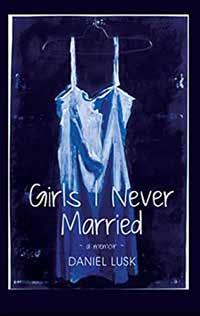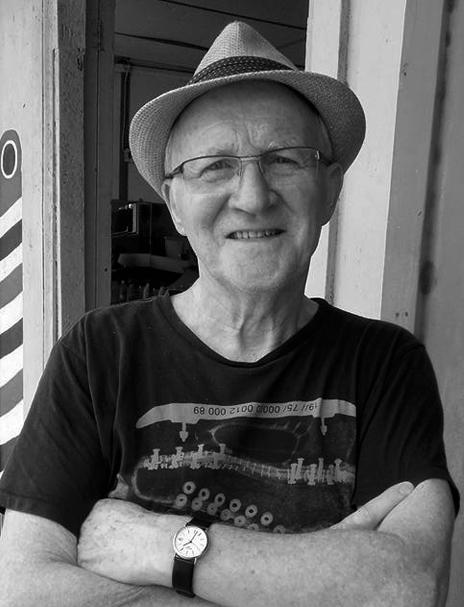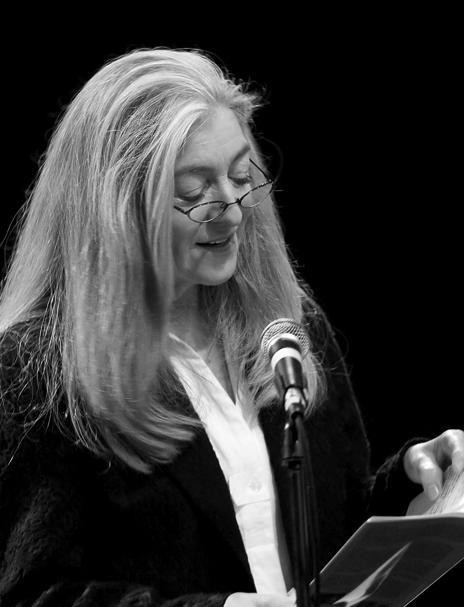
3 minute read
Daniel Tusk - The Table Cloth is White
Daniel Lusk is author of six poetry collections and other books, among them The Shower Scene from Hamlet, The Vermeer Suite, and a memoir, Girls I Never Married. A former commentator on books for NPR and wellknown for his teaching, he has been a Visiting Poet at The Frost Place in Franconia, N.H., Eigse Carlow Festival in Ireland, and Juniata College, Huntingdon, PA. His poetry has been published widely in literary journals, among them Poetry Ireland, North American Review, Poetry, Massachusetts Review, Prairie Schooner, Nimrod, The Iowa Review, and Salamander.
“…tout respire a nouveau La nappe est blanche” —Rene Cagelles
Advertisement
Her bedroom was a closet. And knowing of no better place, I crawled in to lie on the mattress beside her.
Music of friends from beyond the door. Voices leaked in. A thin corona of light.
In Edward Hopper paintings a maid in uniform turns down the sheets; a waitress with her slender back to the uptown couple at an adjacent table
suggest intimacies beyond our view.
Glimpses into bygone rooms, hotel and apartment windows glow against the city’s silhouette like a hillside of far-flung fires.
We may return alone to these hearths in our daydreams— a remembered cupboard or cafe where we tucked ourselves away for love
or solitude in a tumultuous house —someone practices piano, someone sets the supper table, someone calls up the stairs.
Game of Shadows
Geese crossing a cobbled street, a cloud-drenched hovel of driftwood and thatch, a huddle of sheep crowds a country road.
As in a poem dimly remembered, servants dance in the courtyard because a prince has been born in the house.*
The movie takes us to places we have neither been nor imagined.
Fire-escapes tumble from broken buildings in the rain, crocodiles of school children round a corner, a barefoot violinist on a dim subway stair —an air that will follow us home.
Windswept steps to a cliff-top monastery, a mumble of circling monks in cumquat robes.
We forget that these are shadows and light.
Why do we need to leave home, we think, those of us who are faint-hearted. The outer world dissolves and we won’t leave our seats until the lights come up.
When will we find courage to desert our customary duties and place? Stars come out, a meteor shower above the theater parking lot.
We marveled at the horses, drawing little sleighs over the snow. And wonder if they might be there still when or if we finally come.
Town Farm to Converse Bay
We are paddling on the deep lake, passing the encampments of the rich, encampments where tonight the rich lie dreaming.
Our canoe lolls on the lift and fall of rolling waves, swelling the heavy waters, like a heavy hand, shifting toward the shore.
We sense how the rock cliffs and their sloping porches plunge into the bowl of the lake, recalling how in eons past they were thrust up from the fissure.
Now, as in a dream, our fears surround us and we keep our breathing steady by looking far into the distance—sailboats, mountains, swells and billowing cloud formations.
In the beginning was the silence. Then the first o. How the first unspeaking cracked the world and they who had been born conceived the sense of what could be ancestor voices.
Night fallen, we are camped where they camped on the bluff above the shore. We are long asleep.
Then the cry that wakes us to the deep past and the silence.

Out of sleep, the birth cry of the nether bird that reaches us, here by the sleeping lake, out of the fulsome depths we share.





